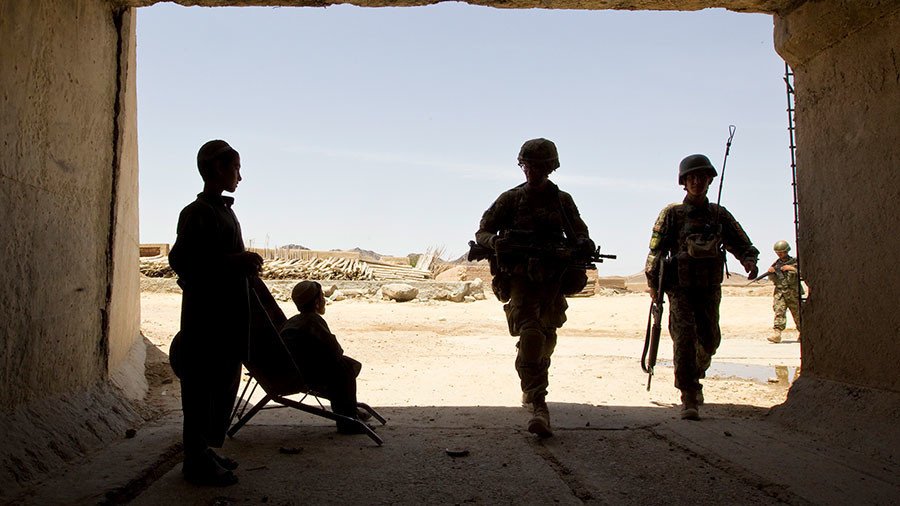‘Moral bankruptcy’: US govt brushes child abuse under the carpet in Afghanistan – ex-diplomat

The US government shrugs off child abuse in Afghanistan but is more than happy to push a very “perverse” human-rights agenda in other countries, says former US diplomat Jim Jatras, pointing to a “complete double standard” in Washington’s rights policies.
A new report by a Pentagon watchdog suggested US forces in Afghanistan did not intervene in cases of child-sex abuse because they were told it is a “culturally accepted practice” in the country. The report added that US soldiers who raised concerns were told that nothing could be done as it is an internal issue for Afghanistan.
The US Marine Corps operational cultural-awareness guide for Afghanistan provides marines with specific guidance on interacting with the Afghan populace, and it includes the statement that marines “need to understand the culture, accept it without making judgments, and figure out how to work with it or around it to accomplish your mission.”
RT discussed the controversy with former US diplomat Jim Jatras.
“These reports have been in the media here and there for years. Everybody knew this was going on, who cared to know. But now we have something official pointing out that this was actually the policy of the US government to look the other way at what amounts to child abuse,” Jim Jatras told RT.
“It really does make you ask the question: is that why Americans are fighting and risking their lives in Afghanistan to make the world safe for pedophilia? I understand that when you are in the country where this is a common practice, “multiculturalism in action”, that you would run into a world of trouble if you actually try to stamp it out. But if you don’t and you are actually condoning it and helping to establish it in this society – what does that tell us? What kind of moral bankruptcy is behind this presence in Afghanistan?” he continued.
“There is a complete double standard. We can’t say anything about not only child abuse in Afghanistan but stoning women and honor killings in Afghanistan,” he said.
Jatras recalled that in Afghanistan “during the Soviet period and the pre-Soviet period, there was a lot of liberation of women during that time, which has been put a stop to now that our friends Mujahedeen have come to power – but we have to respect their sovereignty!”
“On the other hand, in countries like, say, Serbia, we pressure them to have gay-rights parades and all sorts of things that, as a sovereign matter, they don’t want to have, but we are more than happy to push a very perverse human-rights agenda on them. We are ‘respectful of sovereignty’ when we feel like it and we run over it rough shod when we don’t feel like it,” he added.
He says he doesn’t think the US approach has changed at all over time: “It was foolish from the beginning – when Bush talked about Afghanistan, also let’s remember his invasion of Iraq – these people really did seem to believe the notion that all societies and all social values are basically the same, and all you have to do is ‘remove the bad dictator,’ in case of Iraq, and peace and niceness will simply break out spontaneously.”
Jatras pointed out that “in a place like Iraq, when you remove the secular dictator and you end up with various kinds of Sharia and religious, Islamic agendas, you get less human rights, not more human rights. Look at the kind of jihadist fanatics we’ve been supporting in Syria.”
“There seems to be almost a mental block that these people have between their illusions about political liberation, on the one hand, and their unwillingness to face the reality of just how brutal and contrary to any decent notion of human rights and civilization you do find in some countries,” he noted.














